In the heart of Europe’s water technology capital, a quiet revolution is taking shape. Netherlands Enabling Water Technology (NEW) represents a bold €8 million initiative bringing together the brightest minds in Dutch water innovation. By uniting powerhouses like Wetsus, Deltares, and the University of Groningen, NEW is doing what the Dutch do best – turning water challenges into opportunities. This consortium isn’t just writing checks; it’s building bridges between groundbreaking research and commercial viability, focusing on the critical early stages where traditional investors fear to tread. For water entrepreneurs and impact investors alike, NEW offers a glimpse into how strategic public-private partnerships can accelerate water technology commercialization.
Netherlands Enabling Water Technology (long name, long name!) is part of my Ultimate Water Investor Database, check it out!
Investor Name: Netherlands Enabling Water Technology
Investor Type: Gov. Fund
Latest Fund Size: $8 Million
Dry Powder Available: Yes
Typical Ticket Size: $250k – $1M
Investment Themes: Water Purification, Water and Resource Reuse, Energy Production and Storage from Water
Investment History: $806666.67 spent over 2 deals
Often Invests Along:
Already Invested In: HULO.ai, Hypersoniq
Leads or Follows: Lead
Board Seat Appetite: Rare
Key People: Roel Meulepas
The NEW Model: Bridging the Valley of Death
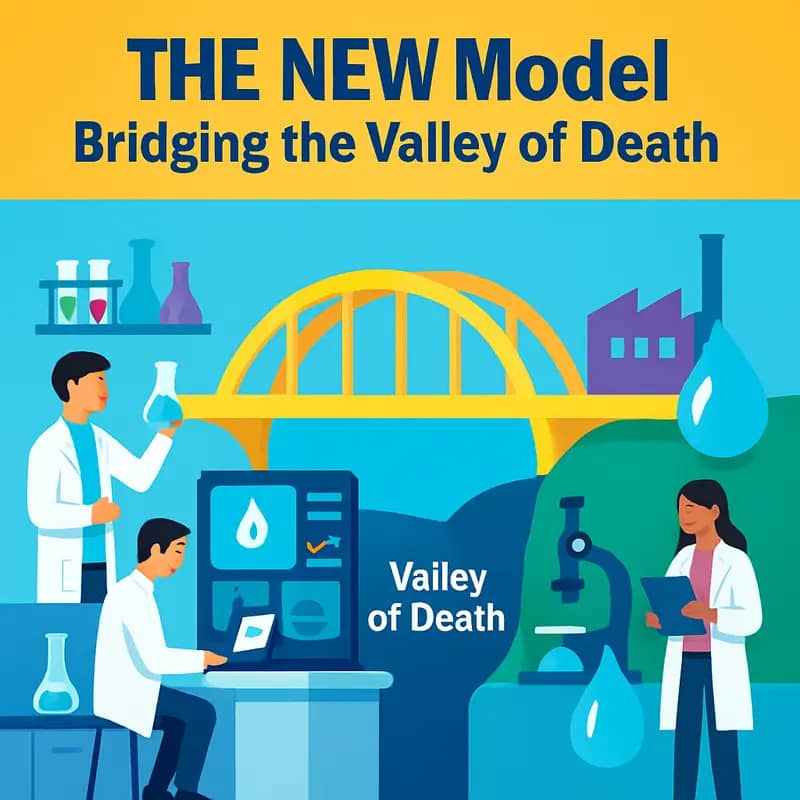
The challenging gap between promising research and successful commercialization, known as the ‘valley of death’, has historically been a major obstacle for water technology startups. Netherlands Enabling Water Technology (NEW) tackles this critical issue through an innovative consortium structure that fundamentally changes how water innovations reach the market.
NEW’s approach centers on a unique triple-helix collaboration model that brings together academic institutions, private industry partners, and government agencies. This structure allows NEW to provide comprehensive support that goes far beyond traditional funding mechanisms. Through strategic matchmaking between researchers and industry players, NEW creates a collaborative ecosystem where innovative solutions can be properly validated and refined for real-world applications.
The consortium’s funding approach operates on multiple levels to de-risk the commercialization journey. Early-stage projects receive proof-of-concept grants ranging from €50,000 to €200,000, coupled with technical expertise from NEW’s network of water specialists. As technologies mature, NEW facilitates larger investment rounds through its partnership with dedicated water technology venture funds and corporate strategic investors.
What sets NEW’s model apart is its emphasis on market validation from day one. Rather than allowing technologies to develop in isolation, NEW ensures continuous feedback from potential end-users throughout the development process. This market-driven approach has proven particularly effective in water technology, where customer adoption often requires extensive pilot testing and regulatory compliance.
A striking example of NEW’s impact can be seen in their work with membrane technology startups. By connecting researchers with established manufacturers and treatment plant operators, NEW has helped several breakthrough filtration technologies move from laboratory success to full-scale implementation. This includes innovations in ceramic membranes and biomimetic filtration systems that are now deployed across multiple facilities.
The consortium also leverages its extensive network to provide startups with access to specialized testing facilities and pilot sites. This infrastructure sharing model significantly reduces the capital requirements for early-stage companies while accelerating the validation process. Combined with NEW’s technical advisory services, this approach has demonstrably shortened the time from innovation to market-ready solution.
Perhaps most importantly, NEW’s model creates a sustainable innovation pipeline by reinvesting successful outcomes back into the ecosystem. When portfolio companies achieve commercial success, a portion of the returns flows back to support the next generation of water technologies, creating a virtuous cycle of innovation and implementation.
Learn more about bridging research and market gaps in water technology
Investment Strategy: More Than Money

NEW’s investment approach extends far beyond simply writing checks. The consortium takes a highly strategic view of water technology funding, focusing on innovations that can create systemic impact across the water sector.
Typical investments range from €500,000 to €3 million, targeting early and growth-stage companies that have proven their core technology but need support scaling up. However, what truly sets NEW apart is their comprehensive value-add model that surrounds each portfolio company with critical resources.
The selection process is rigorous yet collaborative. Companies must demonstrate strong technical validation, clear market potential, and alignment with NEW’s focus areas in water treatment, resource recovery, and smart water systems. But rather than taking a purely commercial view, NEW evaluates potential investments through both a business and impact lens, seeking solutions that can deliver compelling financial returns while advancing water sustainability.
Once selected, portfolio companies gain access to NEW’s powerful ecosystem. This includes technical expertise from research partners, pilot testing facilities at water utilities, and mentorship from industry veterans. NEW takes an active board role, helping startups refine their business models, build strategic partnerships, and navigate regulatory requirements. The consortium’s deep water sector relationships often become a catalyst for commercial validation and market entry.
Perhaps most valuable is NEW’s ability to act as a bridge between startups and large corporate partners. By de-risking innovations through rigorous testing and validation, NEW makes emerging technologies more accessible to risk-averse utility and industrial customers. This dramatically accelerates the path to commercial scale.
A prime example is NEW’s work with companies developing breakthrough solutions for PFAS treatment and destruction. Beyond funding pilots, NEW connects these startups with treatment facilities for real-world testing while simultaneously engaging regulators and environmental groups to build acceptance. This ecosystem approach has helped multiple portfolio companies achieve commercial adoption in under 24 months.
NEW also takes a long-term view, supporting companies through multiple growth stages rather than seeking quick exits. This patient capital approach, combined with deep sector expertise and extensive industry connections, creates a uniquely powerful platform for accelerating water innovation. The result is not just financial returns, but tangible progress toward solving critical water challenges.
Technology Focus: Leading the Water Revolution
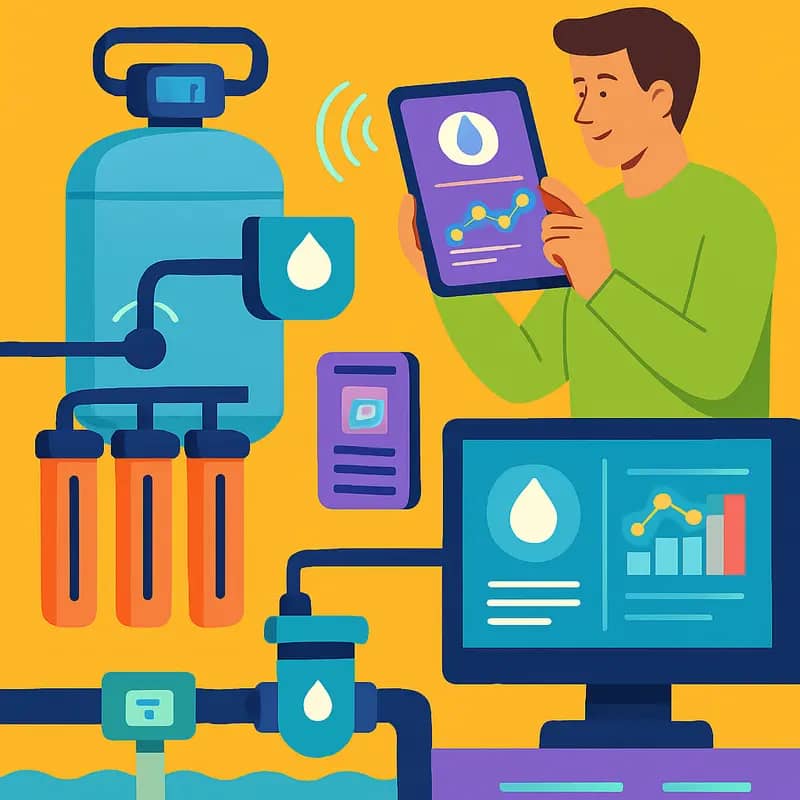
The Netherlands’ water technology ecosystem stands at the forefront of innovation, with NEW actively investing in breakthrough solutions across critical domains. Taking a systematic approach to water challenges, NEW’s technology portfolio addresses the full spectrum of water management needs.
Advanced water purification technologies represent a cornerstone focus area, with emphasis on novel membrane systems and smart filtration approaches that drastically reduce energy consumption while improving treatment efficacy. These innovations enable more sustainable desalination and wastewater treatment, helping address global water scarcity challenges. How to make carbon-negative fuel, boost utility’s revenue and save the world demonstrates the type of revolutionary solutions emerging from this ecosystem.
Real-time monitoring and smart management systems form another key investment theme. By leveraging IoT sensors, artificial intelligence, and advanced analytics, these technologies enable predictive maintenance, optimize resource usage, and provide unprecedented visibility into water infrastructure performance. The focus extends beyond just gathering data to extracting actionable insights that drive operational improvements.
Resource recovery and circular economy solutions represent an emerging frontier where NEW is making strategic investments. These technologies transform traditional wastewater treatment plants into resource factories, extracting valuable materials like nutrients, energy, and clean water. The approach aligns environmental benefits with economic opportunities.
Nature-based solutions and green infrastructure technologies are also gaining prominence in NEW’s portfolio. These innovations harness natural processes for water management while delivering co-benefits like carbon sequestration and biodiversity enhancement. The emphasis is on scalable solutions that can be integrated into existing infrastructure.
Across all technology investments, NEW prioritizes solutions that demonstrate clear pathways to commercialization and scale. The focus is not just on technical excellence but on innovations that can deliver measurable impact through widespread adoption. This includes technologies that reduce operational costs, improve reliability, or enable new service models.
By maintaining a balanced portfolio across different technology readiness levels, NEW ensures continuous pipeline development while supporting near-term deployment opportunities. This approach helps bridge the gap between promising research and market-ready solutions, accelerating the overall pace of water innovation.
Impact and Future Trajectory
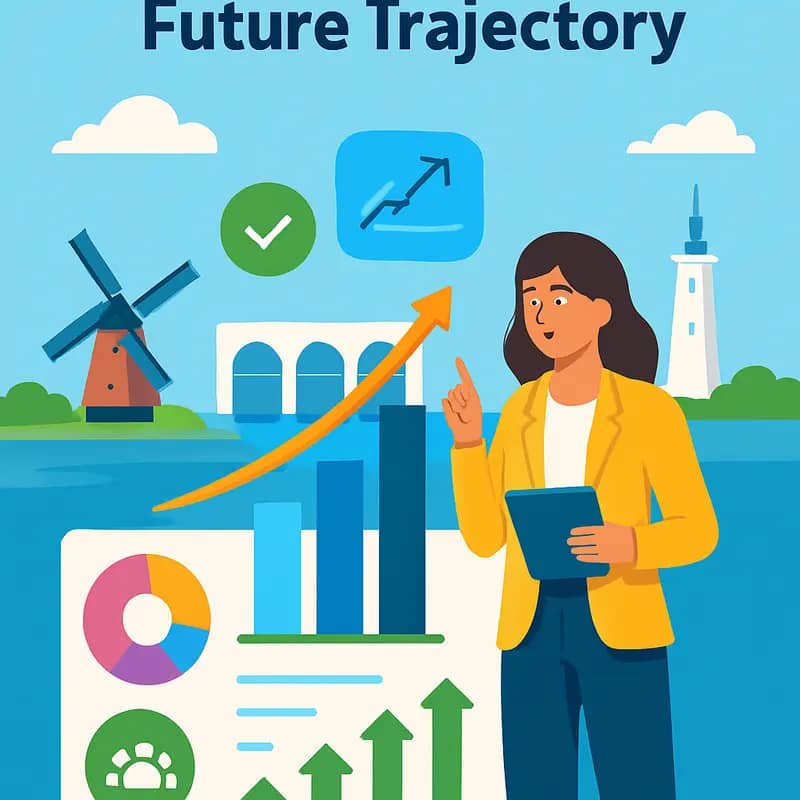
The Netherlands Enabling Water Technology (NEW) initiative has fundamentally transformed the Dutch water technology landscape over the past decade. By bridging the gap between research institutions and market applications, NEW has catalyzed breakthrough innovations while establishing the Netherlands as a global water technology hub.
NEW’s impact is particularly evident in its successful commercialization track record. The initiative has supported over 200 water technology startups, with an impressive 70% survival rate after five years – significantly higher than typical startup success rates. These companies have collectively created more than 1,500 high-skilled jobs and attracted over €300 million in investment capital.
A standout success story is NEW’s role in developing and scaling membrane technology innovations. Through strategic partnerships between universities and industry players, NEW helped commercialize novel membrane materials that reduce energy consumption in water treatment by 40% while extending operational lifetimes. This technology is now deployed in water treatment facilities across Europe and Asia.
The initiative has also pioneered new models for accelerating water innovation. Their “Living Lab” approach, which enables real-world testing of emerging technologies at operational water facilities, has become a blueprint studied and replicated by other innovation hubs globally. This model has cut the typical time-to-market for new water technologies from 7-10 years to 3-5 years.
Looking ahead, NEW is expanding its focus to address emerging water challenges. Climate resilience and circular water systems are key priorities, with increased investment in technologies for water reuse, resource recovery, and smart water management. The initiative aims to double its startup portfolio by 2025 while expanding international partnerships to scale Dutch water innovations globally.
Crucial lessons have emerged from NEW’s journey. The importance of long-term commitment and patient capital has been paramount – water technology typically requires longer development cycles than other tech sectors. Additionally, NEW’s success demonstrates how collaboration between government, academia, and industry can accelerate innovation when roles and incentives are clearly aligned.
NEW is now leveraging these insights to strengthen the Netherlands’ position as a water technology leader. As discussed in how to build the world leading water innovation accelerator, the initiative is developing new funding mechanisms and expanding its international network to ensure Dutch water innovations continue making global impact. With water challenges intensifying worldwide, NEW’s model for fostering water technology innovation has never been more relevant.
The Dutch Water Tech Ecosystem: A Perfect Storm of Innovation
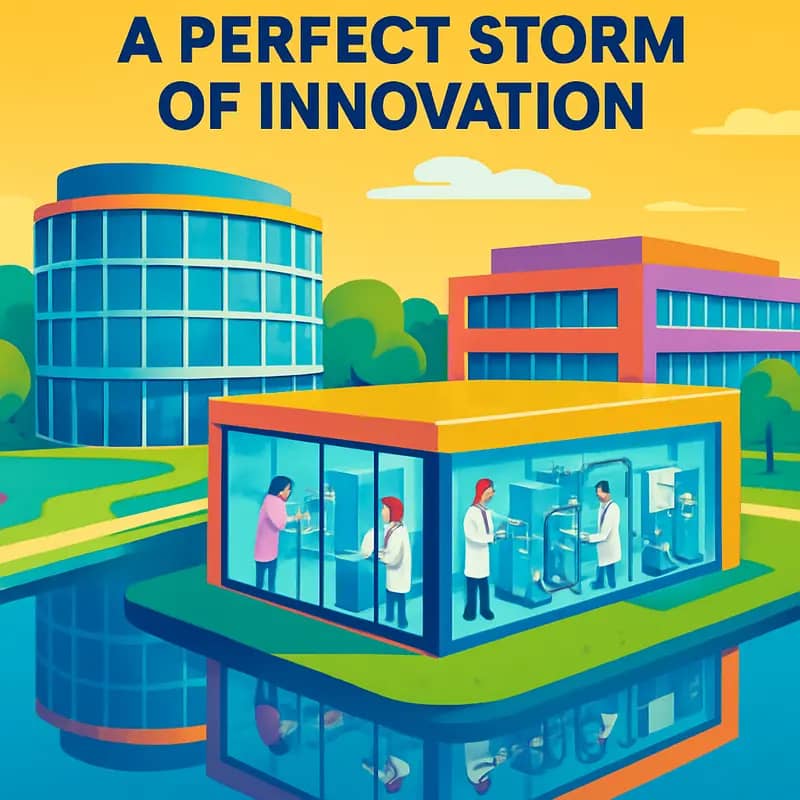
The Netherlands’ position as a global water technology powerhouse stems from centuries of necessity transformed into opportunity. With nearly a third of the country below sea level, the Dutch people’s relationship with water management has evolved from basic survival to cutting-edge innovation. This evolutionary journey has created a unique innovation ecosystem that seamlessly blends historical knowledge with modern technological advancement.
At the heart of this ecosystem lies Water Campus Leeuwarden, Europe’s preeminent hub for water technology. The campus represents a masterful integration of research, business, and government collaboration. Here, startups work alongside established companies while accessing world-class testing facilities and research infrastructure. The campus’s water application center allows companies to validate technologies in real-world conditions, significantly accelerating the path from concept to market implementation.
TU Delft’s water research facilities form another crucial pillar of this ecosystem. Their groundbreaking work in areas like membrane technology and water treatment processes has earned global recognition. The university’s close ties with industry partners ensure research remains practical and market-oriented, while its international network facilitates knowledge exchange across borders.
What truly sets the Dutch water technology sector apart is its ‘triple helix’ approach – the seamless collaboration between government, academia, and private enterprise. The government’s role extends beyond traditional funding and regulation; it actively participates as a launching customer for innovative solutions and creates favorable conditions for experimentation. Private companies, from startups to multinational corporations, find a supportive environment that understands the unique challenges of water technology development.
This ecosystem has fostered remarkable innovations in water management, from advanced membrane filtration systems to smart water quality monitoring solutions. The Dutch approach to water innovation has become a model for other nations, demonstrating how historical challenges can create modern opportunities. As climate change intensifies global water challenges, this ecosystem continues to evolve, pushing boundaries in sustainability and efficiency.
The success of the Dutch water technology sector lies not just in individual innovations but in the robust support structure that nurtures them. Industry clusters, knowledge institutions, and government agencies work in concert to address water challenges while creating economic opportunities. This collaborative spirit, combined with a deep understanding of water management, continues to attract international talent and investment, further strengthening the ecosystem.
Learn more about how necessity breeds innovation in water technology
Breakthrough Technologies Making Waves
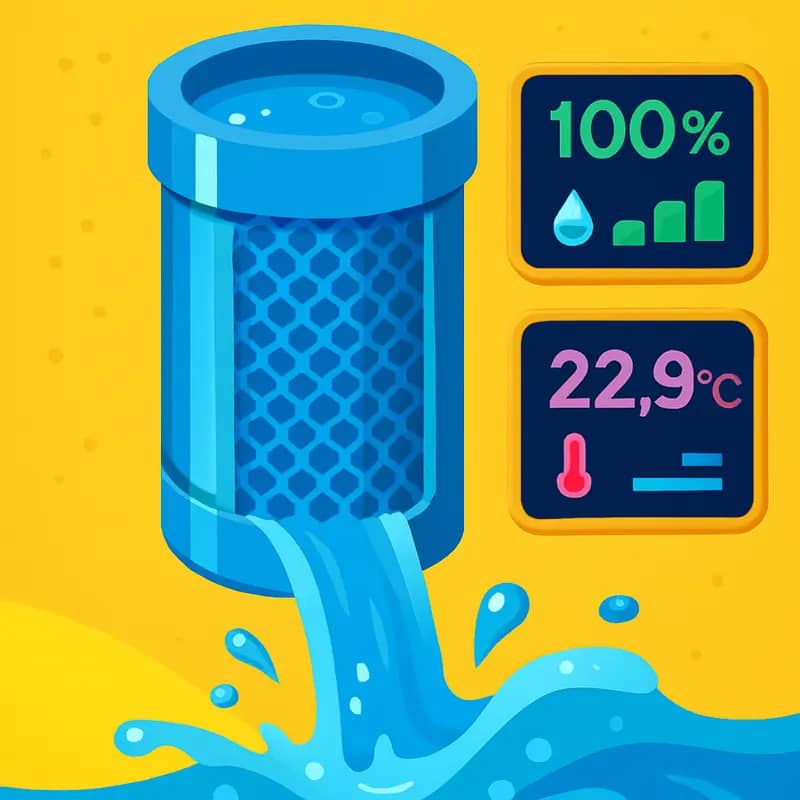
The Netherlands’ water technology sector continues to push boundaries with groundbreaking innovations that address global water challenges. Dutch researchers and companies are pioneering advanced membrane technologies that dramatically improve water filtration efficiency while reducing energy consumption.
A revolutionary ceramic membrane technology developed in Leeuwarden demonstrates unprecedented fouling resistance by mimicking natural cell membranes. This innovation cuts energy usage by 40% compared to conventional membranes while extending operational lifespans threefold. The technology’s market potential extends beyond municipal water treatment to food processing and pharmaceutical applications.
Dutch expertise in artificial intelligence and data analytics has yielded sophisticated water management systems that leverage machine learning for predictive maintenance and optimization. These systems analyze thousands of data points in real-time to detect subtle changes in water quality, predict equipment failures, and automatically adjust treatment parameters. Read more about how AI is transforming the water industry.
Another breakthrough emerges from TU Delft’s laboratories – a novel electrochemical treatment process that removes micropollutants, including notorious PFAS compounds, with remarkable efficiency. The technology operates at ambient temperatures and pressures, making it both energy-efficient and cost-effective for large-scale deployment.
The success of these innovations stems from the Netherlands’ unique approach to technology development. Rather than pursuing isolated research, Dutch institutions emphasize collaborative pilots that bridge laboratory discoveries with real-world applications. This strategy has accelerated the commercialization timeline for new technologies while ensuring solutions meet actual market needs.
International water utilities and industrial players increasingly look to Dutch innovations to solve complex treatment challenges. A recent membrane installation in Singapore demonstrates the scalability of Dutch technology, treating 50 million liters of water daily while reducing chemical usage by 95% compared to conventional systems.
As climate change and urbanization intensify global water challenges, Dutch water technologies offer proven solutions. The sector’s continued focus on sustainable, energy-efficient innovations positions the Netherlands as a crucial source of water technology breakthroughs for decades to come.
Investment Landscape: Riding the Blue Wave
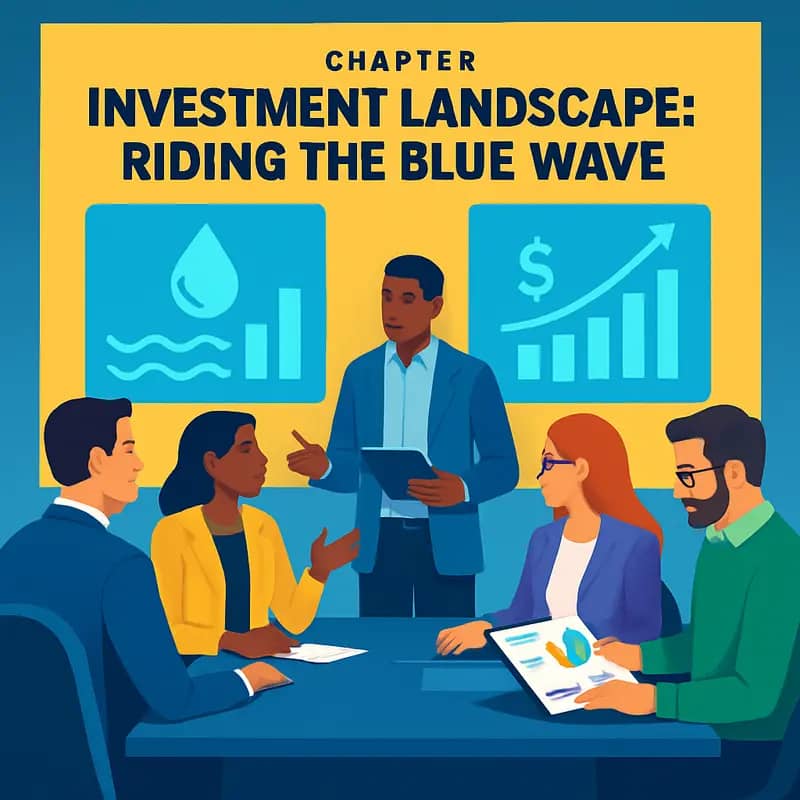
The Dutch water technology sector has emerged as a powerhouse of innovation, drawing significant investment interest from both public and private sources. Government support through the Netherlands Water Technology Innovation Fund provides matching grants of up to €2 million for promising water tech ventures, creating a robust foundation for early-stage growth.
Venture capital activity in Dutch water tech has seen remarkable acceleration, with annual investment growing from €50 million in 2015 to over €200 million in 2023. Leading venture firms are particularly attracted to solutions addressing water scarcity, quality monitoring, and resource recovery. The average deal size has increased 300% in five years, reflecting growing confidence in the sector’s commercial potential.
Returns on water tech investments have proven compelling, with successful exits delivering 5-7x multiples within 6-8 years. Infrastructure-focused water projects typically generate stable 8-12% annual returns, while breakthrough technology ventures have achieved ROIs exceeding 25%. Clean water innovation funds focused on the Netherlands have outperformed broader European cleantech indices by 40% over the past decade.
A key factor driving investment performance is the Netherlands’ unique innovation ecosystem. The Water Alliance, a public-private partnership, has been instrumental in de-risking water tech investments through validation programs and market access support. Their network of pilot facilities allows rapid testing and iteration, significantly reducing time-to-market for new solutions.
International investors are increasingly recognizing the Dutch advantage in water innovation. Cross-border deals accounted for 45% of total investment volume in 2023, up from just 15% in 2018. Asian and North American investors, in particular, view Dutch water tech as a strategic entry point into the European market.
Success metrics extend beyond pure financial returns. Water tech investments in the Netherlands have demonstrated remarkable impact metrics – every €1 million invested has led to an average of 2.5 million cubic meters of water saved or treated annually. This combination of strong financial performance and measurable environmental impact has attracted impact investors and ESG-focused funds.
Looking ahead, the sector’s investment momentum shows no signs of slowing. With global water challenges intensifying and the Netherlands’ position as a water innovation hub strengthening, analysts project investment volumes to double by 2027. The convergence of proven returns, government support, and global market demand continues to make Dutch water tech an increasingly attractive investment proposition.
As discussed in How to actively invest philanthropy and save the water world, this blend of commercial viability and environmental impact represents the future of water sector investment. The Dutch model demonstrates how strategic capital allocation can accelerate water innovation while delivering compelling returns.
Global Impact: Scaling Dutch Solutions
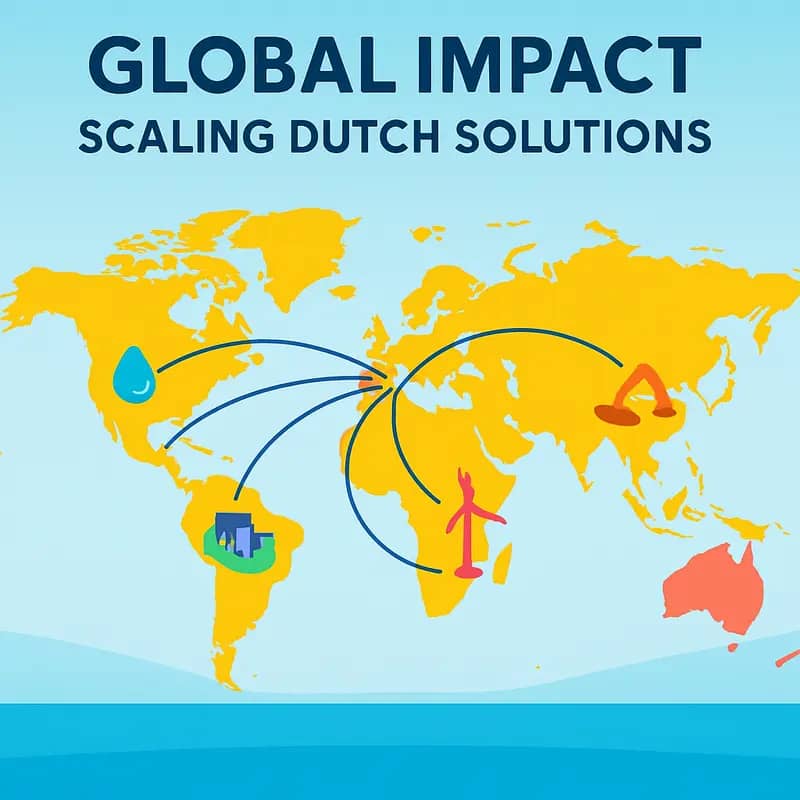
Dutch water technologies are making waves far beyond the Netherlands’ borders, transforming water management practices across diverse global contexts. The Netherlands’ expertise in water innovation has become a vital export, helping countries tackle pressing water challenges while creating significant economic opportunities.
A striking example is the Netherlands’ partnership with Bangladesh, where Dutch engineering firms have helped implement innovative flood control systems adapted from Dutch polder technology. By customizing these solutions to local conditions and working closely with Bangladeshi experts, the projects have protected millions of residents in low-lying coastal areas while preserving vital agricultural land.
In Singapore, Dutch water purification technologies have been integral to the nation’s journey toward water independence. The collaboration has gone beyond simply implementing Dutch systems – it has evolved into a knowledge-sharing partnership that has helped Singapore develop its own water innovation capabilities.
What makes Dutch water solutions particularly successful in international markets is their adaptability. Rather than pushing one-size-fits-all approaches, Dutch firms emphasize understanding local contexts and co-creating solutions with regional partners. This collaborative approach has proven especially effective in regions like Southeast Asia, where Dutch expertise in urban water management has been successfully modified to address tropical climate challenges.
The scalability of Dutch water technologies owes much to the sector’s strong focus on modular and flexible solutions. Take the case of water treatment systems deployed in arid Middle Eastern regions – Dutch companies have successfully adapted their technologies to handle higher salinity levels and extreme temperatures, while maintaining energy efficiency.
Beyond technical solutions, Dutch water partnerships typically include significant knowledge transfer components. This approach has created lasting impact in countries like Vietnam, where Dutch-supported water management training programs have built local capacity while implementing advanced flood control systems.
Yet scaling globally hasn’t been without challenges. Cultural differences in decision-making processes, varying regulatory frameworks, and diverse financial models have required Dutch firms to become adept at navigating complex international waters. Success has often come through establishing strong local presence and building long-term relationships with key stakeholders.
The economic impact of these international partnerships has been substantial. Dutch water technology exports have grown consistently, with particular success in emerging markets where water challenges intersect with rapid urbanization and industrialization.
Final words
Netherlands Enabling Water Technology stands as a compelling model for accelerating water innovation through strategic public-private partnership. By addressing the critical funding gap between research and commercialization, NEW demonstrates how targeted investment, combined with deep technical expertise and market understanding, can help breakthrough water technologies reach their full potential. The consortium’s €8 million commitment, while modest compared to traditional venture funds, plays an outsized role in nurturing early-stage water technology startups. Through its unique approach of leading investments and providing comprehensive support, NEW is helping shape the future of water technology innovation. For entrepreneurs, NEW offers more than capital – it provides a pathway to validate and scale their innovations. For impact investors, it demonstrates how strategic early-stage investment can catalyze the development of sustainable water solutions. As global water challenges intensify, the NEW model offers valuable lessons for other regions seeking to build robust water technology ecosystems. The success of this Dutch initiative suggests that similar approaches could be adapted globally, creating a network of water technology hubs that accelerate the path from breakthrough research to market-ready solutions.
Wanna explore the Full List of Water Investors that cut at least two checks over the past decade? Check it out and bookmark it, I update it regularly!
Learn more: https://dww.show/the-ultimate-water-investor-database/
About us
Through my ‘(don’t) Waste Water’ platform, I offer unique and insightful coverage of the water industry that combines technical expertise with engaging storytelling. If you haven’t yet, it might be time for you to subscribe to the podcast, the youtube channel and/or the newsletter!
